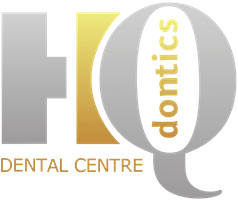Understanding The Importance of Dental Cleanings
We have basically three different types of dental clinics. We have the regular dental cleaning, which is for someone who has been a periodic patient. We do that every three, four, or six months. This is for a healthy patient.
We have a second or an intermediate type of dental cleaning called debridement. A debridement is done for a patient that has a lot of calculus deposits and needs to be a little more thorough.
Then we have a third type of dental cleaning, called a deep cleaning. This is usually done by quadrants, so we typically do a section of the mouth at a time. It can be done all in the same visit, but we typically divide it into four. For this type of cleaning, you'll need to be anesthetized because we need to go a little deeper. This is usually for someone who has periodontal disease, meaning you have gone a long time without a dental cleaning.
Why are dental cleanings important?
Dental cleanings are very important because they prevent inflammation in your gums. Eventually, that inflammation can affect the bone, and the bone doesn't like inflammation. The result can be bone loss, so we want to prevent that by removing the bacteria that create inflammation through dental cleanings.
How often should I get a dental cleaning?
Dental cleanings should be done regularly. Most people should have them every four months. If you tend to accumulate too much calculus or tartar, then every three months is recommended, but three, four, or six months is usually typical.
Are dental cleanings painful?
Dental cleanings are not usually painful. If you have been a regular patient, dental cleanings are typically not painful. A typical dental cleaning should take about 45 minutes. A deep cleaning usually takes about an hour to an hour and a half.
What is the procedure for a dental cleaning?
The hygienist will evaluate you first. We'll determine how much calculus you have accumulated throughout your mouth. Then we'll remove that calculus using different types of instruments, which can be manual or ultrasonic. We finish by polishing your teeth.
Dental hygienists can remove all the tartar accumulated on your teeth, provided it is not excessive. If you have a lot of calculus accumulated, a regular cleaning won't be sufficient. You'll probably need a deep dental cleaning to ensure all bacteria are removed.
Can my teeth be damaged by a dental cleaning?
Dental cleanings per se cannot damage teeth. The instruments we use are very powerful, but they're also very gentle. It all depends on the hygienist performing the procedure, but typically your teeth will be safe.
Will my teeth be sensitive after a dental cleaning?
This is a very important question. We can apply desensitizing agents to the surface of the roots of your teeth to reduce sensitivity after the cleaning. Alternatively, we can provide you with analgesics like ibuprofen or Tylenol, which should be sufficient.
If you’re ready to schedule an exam or would like to learn more about our services, we’d love to hear from you. Call us at (229) 508-0551 or email [email protected]. We look forward to caring for your smile.

